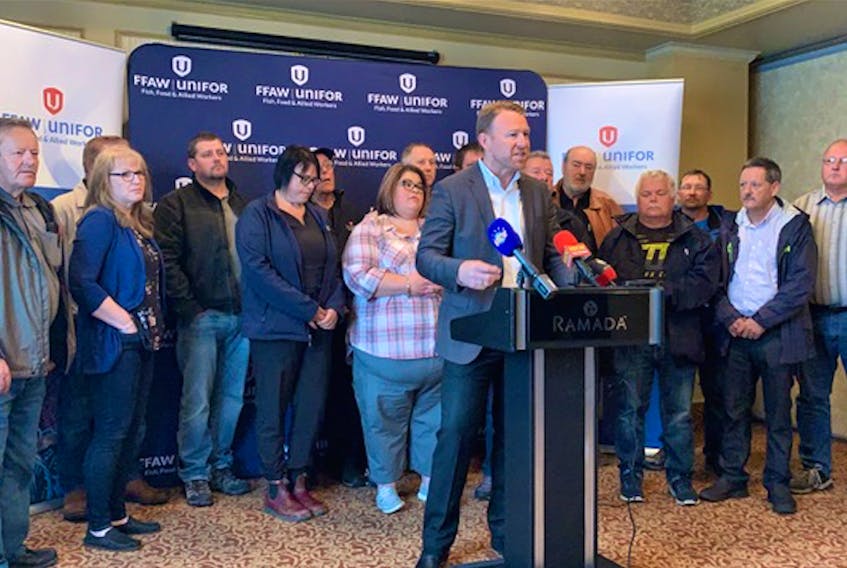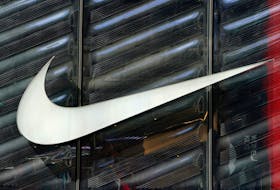ST. JOHN'S, N.L. — Fish harvesters gathered in St. John’s Tuesday to speak out against what their union describes as the cartel-like behaviour of the province’s fish processing companies.
The Fish, Food and Allied Workers (FFAW-Unifor) union says that, as a result of what it claims are co-ordinated efforts by some of the largest companies, who refused to buy species such as northern cod and squid for several weeks this season, harvesters are calling on the provincial government to issue new processing licences and develop a strategy to attract more competition and investment within the industry.
“FFAW will not stand by while corporations dictate the terms of the inshore fishery,” FFAW-Unifor president Keith Sullivan stated in a news release.
“What we saw this fishing season was a clear pattern of cartel-like behaviour from companies who refused to buy northern cod and squid and who have a monopoly on our industry. The processing company actions are not just illegal, they threaten the very foundation of our coastal communities.”
The release states that over the past seven years, five large companies — Ocean Choice International, Barry Group, Beothic Fish Processors, Royal Greenland and Quinlan Brothers – have purchased dozens of smaller processing companies in the province. Some of those smaller companies purchased remain in operation, while many are shuttered.
"The processing company actions are not just illegal, they threaten the very foundation of our coastal communities.” — Keith Sullivan
“This corporate monopoly has meant that processing capacity, market development and rural economic development has taken a back seat to the profits of a few corporate executives,” Sullivan stated.
The release notes that in August, processors staged an illegal lockout at the opening of the northern cod stewardship fishery by refusing to purchase fish. Companies blamed an influx of caplin, but that was proven false.
The release also states that in recent weeks, buyers have refused to purchase squid at the negotiated price, even after a new price was set when the provincial Standing Fish Price Setting
Panel accepted the Association of Seafood Producers' final offer of a lower price.
“It’s extremely frustrating to have access to an abundant, high-quality resource, whether it be cod or squid, and not have a buyer for it,” said Tony Doyle, Bay de Verde fish harvester and
FFAW-Unifor inshore council vice-president. “Inadequate capacity to process turbot, caplin, cod and squid fisheries have cost our communities millions of dollars this year alone.”
The union says that despite market demand and significant quantities of high-quality product landed by inshore harvesters, many plants are not operating at full capacity and others do not make arrangements to process when multiple fisheries are open at once. Many fisheries are unable to be prosecuted to their full potential because there is no processing capacity.
“The fishery on the northeast coast has been booming in the last number of years,” said Nancy Bowers, a fish harvester from Beachside.
“The problem right now isn’t the lack of fish, it’s the lack of a buyer. We need processors to reliably buy our product at a fair price.”
More than 20 million pounds of seafood is landed on the Baie Verte Peninsula each year, most of which is trucked long distances due to little processing capacity in the area. The union says trucking affects the product quality, price and value of local seafood on the international market.









